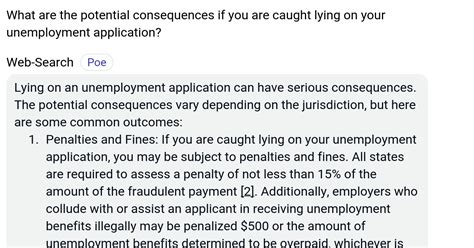Introduction

College applications are a crucial step in the higher education journey. They provide institutions with insights into students’ academic and personal qualities, making honesty and integrity paramount. Unfortunately, some applicants resort to unethical practices such as lying on their applications, jeopardizing their chances of admission. This article explores the potential consequences of caught lying on a college application and offers strategies to prevent such occurrences.
Consequences of Lying on College Applications
Lying on a college application is a serious offense that can have severe consequences:
- Automatic Disqualification: Many colleges have a zero-tolerance policy towards applicants caught lying. Providing false or misleading information can result in an immediate denial of admission.
- Reputational Damage: Honesty and integrity are highly valued in academic settings. Caught lying can damage an applicant’s reputation, not only within the college community but also in their broader academic network.
- Legal Penalties: In some cases, lying on a college application may constitute fraud or perjury, which are punishable by law.
Why Do Applicants Lie on College Applications?
There are several reasons why applicants may consider lying on their applications:
- Pressure to Excel: The competitive nature of college admissions can create intense pressure on students to present themselves in the best possible light. Some feel tempted to exaggerate or fabricate accomplishments to improve their chances.
- Fear of Failure: Applicants may fear that their genuine qualifications are not strong enough to gain admission. This fear can lead them to resort to dishonesty to compensate for perceived shortcomings.
- Influenced by Others: Peers, parents, or mentors may encourage applicants to embellish their applications to increase their chances of success. Such pressure can cloud their judgment and lead to unethical behavior.
Prevention Strategies
To prevent lying on college applications, several strategies can be implemented:
- Encourage Honesty: Institutions should emphasize the importance of integrity throughout the application process. This can be done through clear guidelines, ethics workshops, and open communication with applicants.
- Provide Support: Colleges should offer resources and support to help students navigate the application process honestly. This includes providing guidance on what information should and should not be included, as well as how to present qualifications accurately.
- Foster a Culture of Integrity: Educational institutions should create a culture that values honesty and discourages unethical practices. This can be achieved through role modeling, peer support, and consequences for academic misconduct.
Common Examples of Lying on College Applications
Lying on a college application can manifest in various forms, including:
- Exaggerating Grades and Test Scores: Applicants inflate their GPA or standardized test scores to enhance their academic profile.
- Fabricating Extracurricular Activities: Applicants create fictitious extracurricular activities or inflate their involvement in existing ones to make themselves appear more well-rounded.
- Plagiarism: Applicants copy or paraphrase others’ work and submit it as their own, violating academic integrity policies.
- Lying About Identity or Circumstances: Applicants misrepresent their race, ethnicity, or personal background to gain an advantage in admissions.
Statistics on Lying on College Applications
According to a study conducted by the National Association for College Admission Counseling (NACAC), 63% of high school students admitted to lying on at least one college application. This figure highlights the prevalence of this issue and the need for preventive measures.
Key Takeaways
- Lying on a college application is unethical and can have severe consequences.
- Pressure to excel, fear of failure, and external influences can lead applicants to lie.
- Prevention strategies include encouraging honesty, providing support, and fostering a culture of integrity.
- Common examples of lying include exaggerating grades, fabricating extracurricular activities, plagiarism, and lying about identity or circumstances.
- Statistics suggest that a significant number of high school students engage in such practices.
Conclusion
Lying on a college application is a serious offense that can jeopardize an applicant’s future prospects. To prevent such occurrences, it is essential for institutions and students to work together to promote honesty and integrity throughout the application process. By understanding the consequences of lying and implementing preventive strategies, we can ensure that students are fairly evaluated and that the college admissions process remains fair and transparent.
